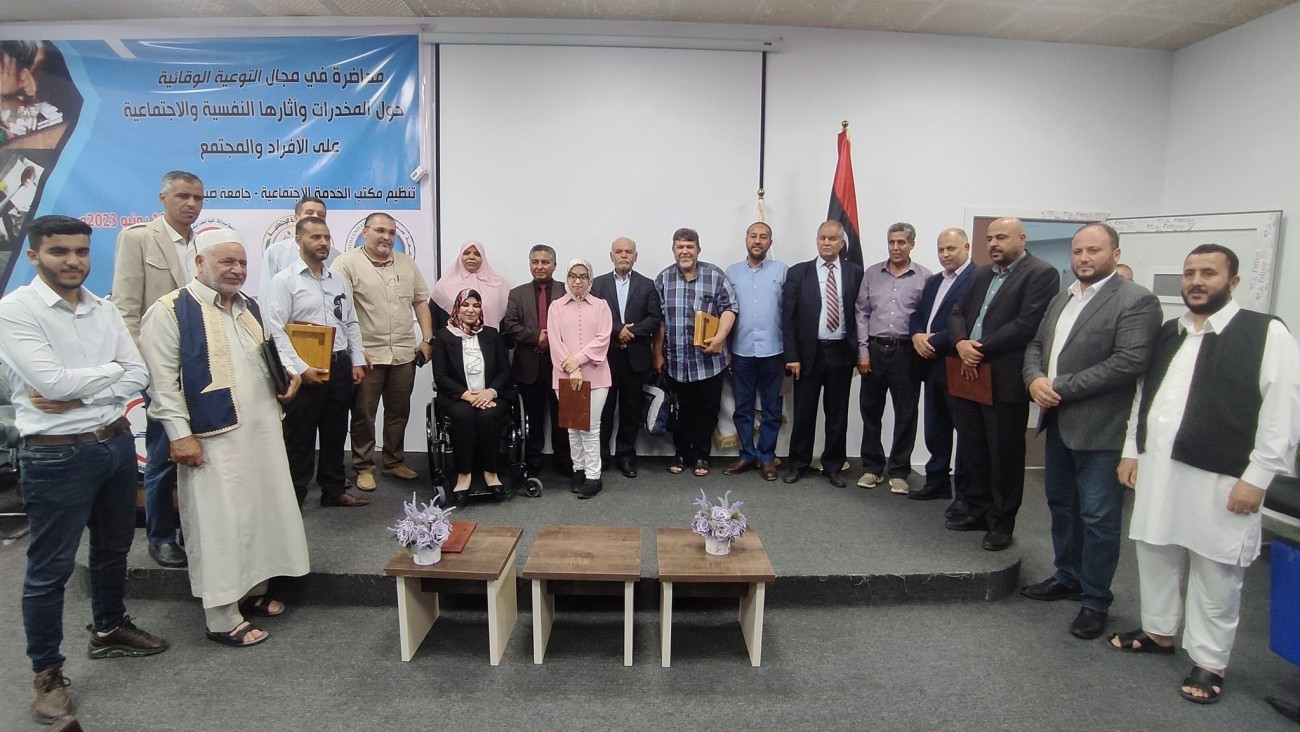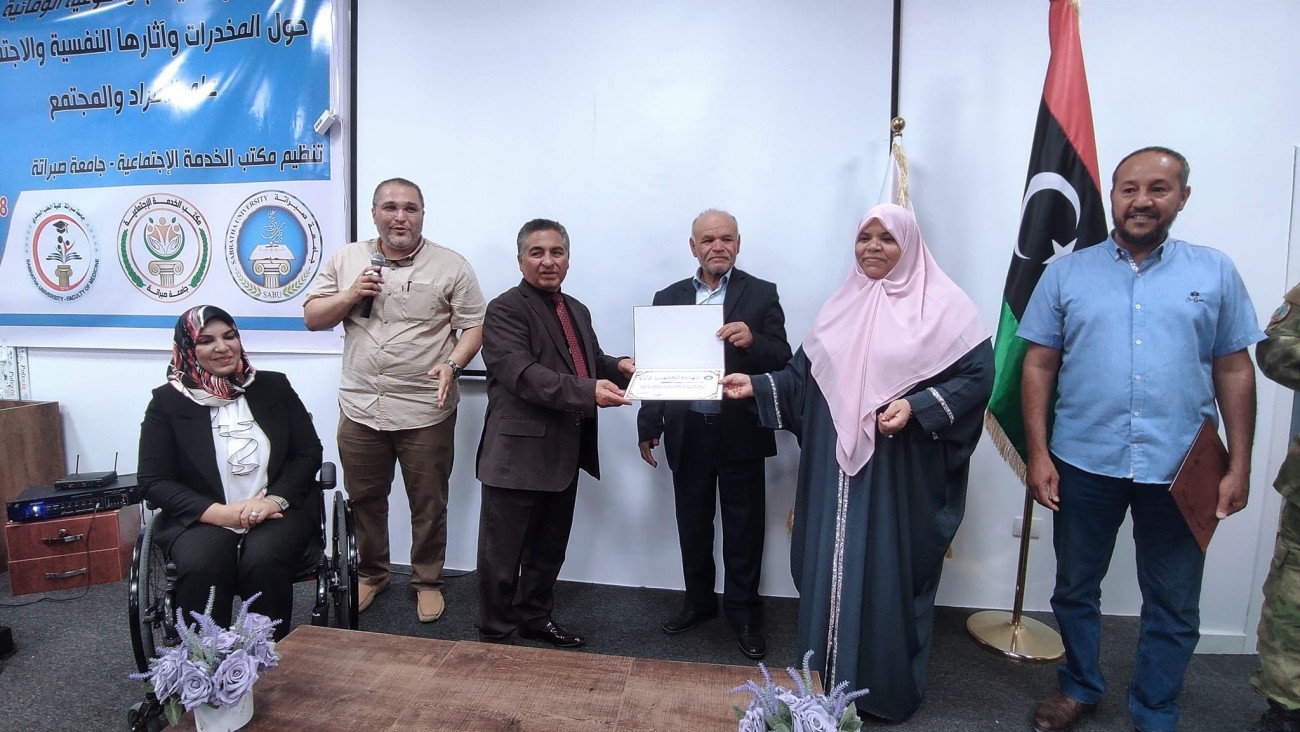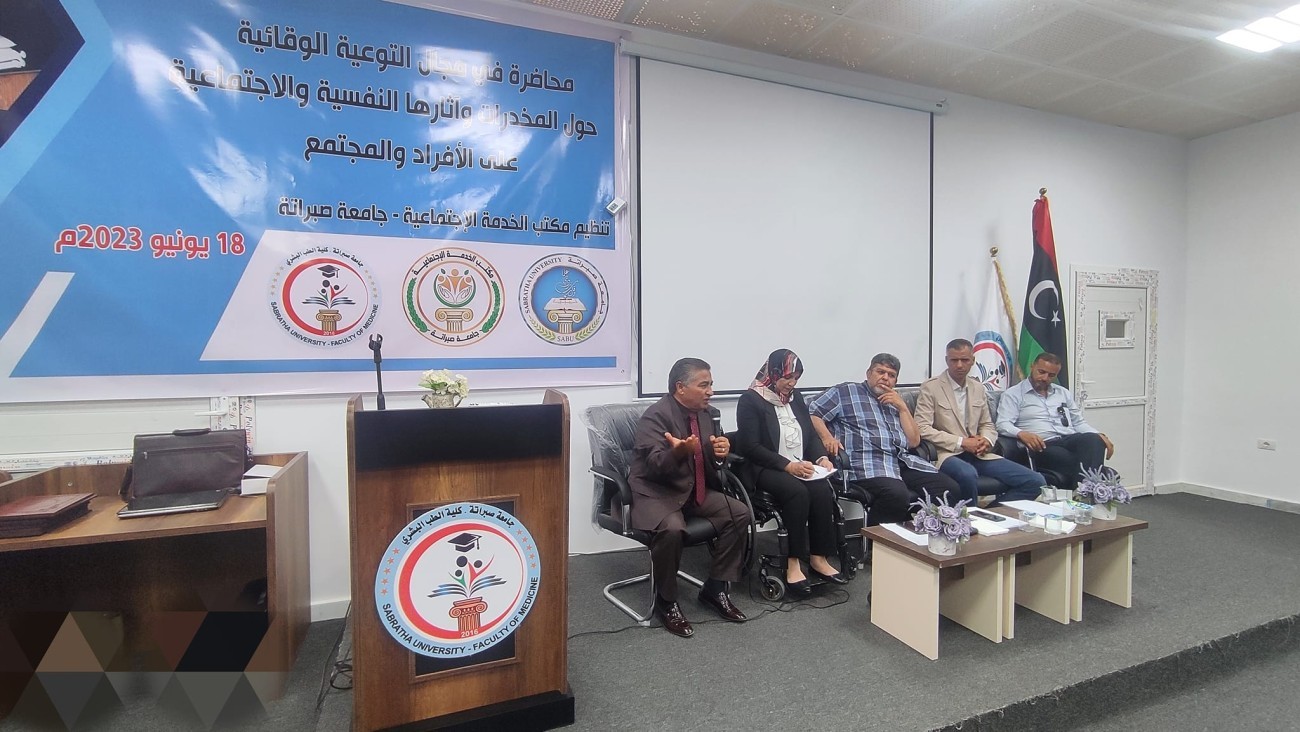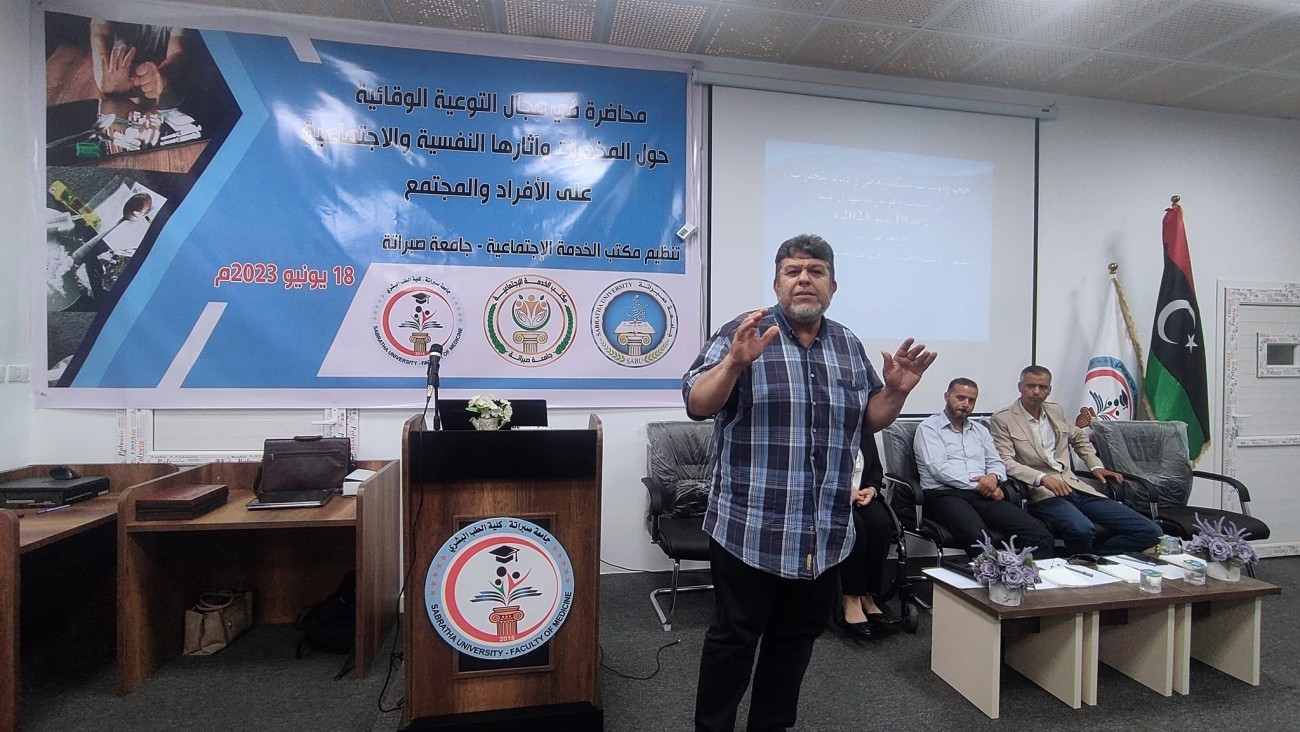As part of social responsibility and the role of educational institutions in awareness, education, guidance, and direction, and in collaboration with the Faculty of Human Medicine in Sabratha, the Social Service Office at Sabratha University organized a lecture this morning, Sunday, June 18, on preventive awareness regarding drugs and their psychological and social effects on individuals and society.
The lecture addressed three aspects: (the practical aspect, the psychological and social aspect, and the legal aspect). It was presented by specialists in the field of awareness, education, and guidance: Mr. Rajab Aboujanah, Dr. Tarek Al-Toumi, and Mr. Wasef Al-Muallif.
Mr. Rajab Aboujanah's participation in this lecture focused on the practical aspect, emphasizing the extent of the risks posed to individuals and society due to drug abuse in all its forms. This was supported by a comprehensive presentation of statistics, figures, and studies that highlight the dangers of drug use and trafficking in our community. Dr. Tarek Al-Toumi's contribution addressed the psychological and social aspects, discussing the reasons that lead individuals to substance abuse and describing the cases of drug users, along with everything related to psychological and social dimensions. Mr. Wasef Al-Muallif's participation covered the legal aspect regarding the phenomenon of drug use and psychoactive substances, discussing Islamic rulings on their consumption and trafficking, as well as the responsibilities of regulatory and security authorities concerning these deadly imported toxins that threaten society as a whole.
The lecture also included interventions and questions from some attendees, focusing on the reasons, responsibilities, and available means to find solutions or limit the spread of drug use and trafficking
The lecture held in the auditorium of the Faculty of Medicine in Sabratha witnessed the attendance of the university president, the mayor of Sabratha, the university’s academic affairs agent, the dean of the Faculty of Medicine, and representatives from several security and relevant government agencies, including the director of the Sabratha Drug Control Office, the director of the Drug and Psychotropic Substances Control Authority in the western region, a representative from the Oil Installations Security Guard, the director of the Sabratha Security Affairs Office, the Women Empowerment Office in Sabratha, and the Red Crescent Society Sabratha branch, in addition to a number of professors, specialists, students, invited guests, and a group of interested parties.
At the end, the professors who participated in delivering the lecture and several representatives from the security agencies involved in combating drugs and psychotropic substances were honored, along with personalities who played a role in organizing and ensuring the success of the lecture.
 English
English
 العربية
العربية






Add New Comment